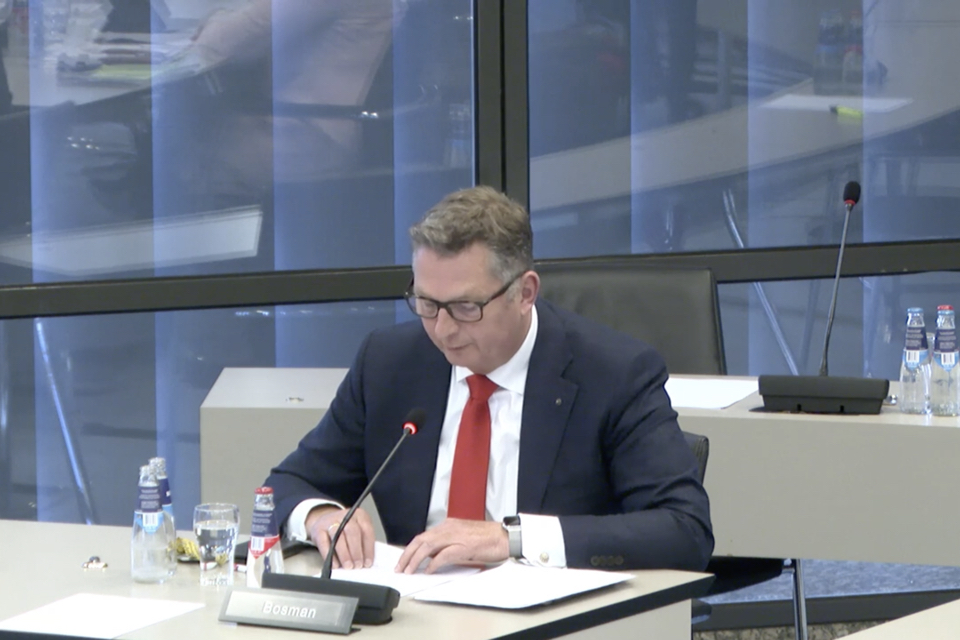‘Expenditure on defence equipment could be part of the solution to the current corona crisis,’ says André Bosman of Dutch political party VVD. ‘A number of planned projects could very well – and maybe should – be executed in the Netherlands so that they can boost the economy.’
Bosman says this during a parliamentary debate on the Defence Materiel Fund, which took place on Monday 20 April. Goal of the fund is to pay all new IT, equipment and maintenance projects for Defence from this fund. Such projects are often faced with delays and normally ministries have to return money that they do not use up within their own budget to the Ministry of Finance at the end of term. With the new fund, money intended for the purchase of new equipment can be carried forward to subsequent years.
Carrying out defence projects in the Netherlands with Dutch companies and possibly even executing them earlier than planned would ‘boost Defence, employment and the economy,’ Bosman states during the debate. ‘It would be extraordinary if those jobs and that money were going abroad at a time like this.’
It would be extraordinary if those jobs and that money were going abroad at a time like this
Best in the world
When it comes to naval vessels, he adds: ‘We simply want the best boat, for the best price. This does not mean it has to be the cheapest. It has to be safe above all. What it comes down to, is that during this crisis we are going to spend a lot of money on the Dutch economy. Imagine that instead of building part of a boat like an M-frigate or LCF for the future abroad, we would build the entire ship here to invest in the Netherlands and to ensure employment. I see a cooperation with the Ministry of Economic Affairs in this respect. Yes, this would make it more expensive, but we would also have jobs and the ship would be of high quality. Of that I have no doubt.’
‘Of course it is different for what we cannot make in the Netherlands, but when it comes to our maritime industry we are perfectly able to do this ourselves. This industry is among the best in the world,’ says Bosman.
Internal procurement
He is not afraid putting the Dutch defence industry first would cost orders from abroad.
‘When you look at our neighbours, France and Germany, we are actually behind in internal procurement. Ninety per cent of France’s tenders, for example, are procured internally. If they could also do the other ten per cent themselves, they would do so. For the Netherlands, this is just 46 per cent.’
Germany also gets a good dressing-down. ‘Look at the frigate order a Dutch company [Damen Shipyards is to build four German frigates worth billions Ed.] won in a European tender. They won the order fair and square and now the Germans are going to court over it because they would rather see a German company build them.’ So all the more reason for the Netherlands to also apply the trick of building its defence equipment within state lines, according to Bosman.
Joël Voordewind (Christenunie) agrees with this. ‘If Germany and France do this, why not us? Preserving our defence industry results in more employment and knowledge and also creates a spill-over effect to other industries.’
Bringing projects forward
Martijn van Helvert (CDA) supports Bosman and Voordewind and goes even further. ‘I want to ask the Minister to bring tenders and mid-life updates forward. Use the Dutch industry as much as possible for the preservation of defence equipment. We need to make more use of Article 346, which allows us to deviate from European tendering. The industry does not see this happen often enough. In addition, there are often significant delays in tendering processes. We need to do something about that as well.’
Earlier, SWZ|Maritime had already asked the Ministry of Defence whether they could bring projects forward. The response was that this was very difficult because the ‘Defence Materiel Organisation’s project portfolio is so full that there is hardly any room or capacity to do so at the moment.’ Minister Ank Bijleveld now answers the same during the debate.
Defence Materiel Organisation’s project portfolio is so full that there is hardly any room or capacity to bring projects forward
She adds that the investment planning was carefully created and linked to the expected lifetime of equipment. ‘Replacing them earlier would not be effective. In addition, it remains to be seen whether, when we do bring something forward, it can be executed in the Netherlands in the short term. We will have to look into this.’
‘We have asked companies to come forward with any challenges or bottlenecks they face so that we can try to help them. For example by paying them earlier than planned.’
When it comes to applying Article 346 more liberally, she says there are ‘legal limits that have to be taken into account. We are not at liberty to just decide that. And at this moment in time, in light of the corona crisis, I don’t see any reason to change our acquisition strategy right away. The European Commission will also have to decide to relax procurement rules. We will look into making use of the Article’s exemptions sooner for new projects, however.’
Reducing delays
So while she sees few options for bringing projects forward, she has said she will try to tackle the delays in defence projects and their tendering and try to stick to deadlines.
Concerning reducing delays in the tender process, Van Helvert also offers a suggestion to the Minister. ‘We should introduce more knock-out criteria, for example concerning transfer of intellectual property. This may mean there will be fewer tender candidates DMO has to go into talks with thereby reducing pressure on DMO.’
Picture: André Bosman during the debate on Monday.








